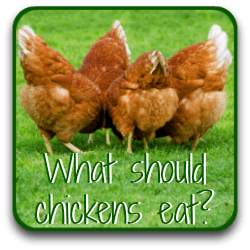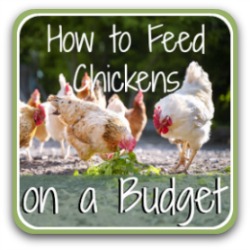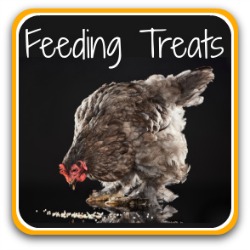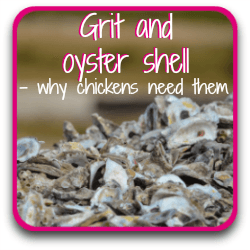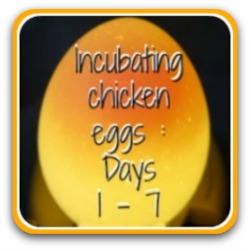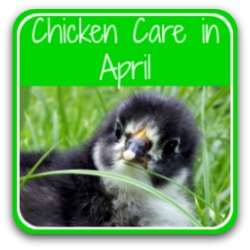Can chickens eat nuts?
It's party time. You have a full festive menu worked out for your family. But what about the chickens?
Whether you want to offer your flock a full gala menu or you're just wondering which leftovers chickens can eat, here's a list of 20 of the most common celebration foods and which are healthy to offer, which are not necessarily healthy but "ok", and those which your chickens should not be eating at all.
Let's be clear before we start: chickens are not people and should not be eating like people. It's fine to give them treats once in a while, but their main diet should be chicken food.
Only offer any treat after they have eaten their own food, and no more than once or twice a week.
I've broken these festive foods into four sections – it's not an exhaustive list but it's a start:
* Snacks
* Starters
* Sides
* What festive food chickens should not eat.
The information about the effects of these foods on chickens is based on properly researched studies. My sources are listed at the end of the article.
European Feed Regulations.
Please note: I am required to tell you that in Europe, including the UK, regulations state that chickens should not be fed any foods which have been in a kitchen, whether the kitchen is a professional or a domestic one.
This includes meats, vegetables and any kitchen scraps and it applies to all backyard chickens, however large or small the flock, and whether or not you sell their eggs or meat to others.
There are currently ongoing discussions as to whether this law can be relaxed.
Here's what's covered in each section.
Snacks!
Let's start by looking at the nibbles we're likely to have left over after our festivities.
1. Can chickens eat nuts?
The short answer is "yes – but".
All nuts are high in protein, fibre, and varied vitamins which support the immune system. So in winter, when chickens need protein to help counter the effects of the cold and vitamins to stave off disease, nuts can be a helpful addition to feed.
Chickens can eat all kind of nuts: peanuts, walnuts and almonds are particularly beneficial. Chop them finely and scatter on the ground, or add them to a recipe.
If you have unshelled peanuts, feed them whole. The shells are not harmful(1) and getting at the peanuts inside can entertain chickens when winter weather makes outside foraging difficult.
BUT
- Make sure they are unsalted. Excess salt has been shown to cause a number of health problems in poultry, including an increase in shell-less eggs(2), which can lead to egg peritonitis – a potentially fatal condition.
- Too much fat and protein from nuts can cause a number of illnesses in poultry(3), including adding to Sudden Chicken Death Syndrome. Feed sparingly.
 An Italian pre-dinner Christmas table. Very little is good for chickens!
An Italian pre-dinner Christmas table. Very little is good for chickens!2. Can you feed chickens cured meats?
Platters full of cocktail sausages, salami and pepperoni may grace your festive table, but they're not a good food source for chickens.
Any kind of processed meats contain serious amounts of fat and added sugars, salts and preservatives.
- So avoid giving processed meats to chickens. Stick with fresh meat, which they love.
3. Can chickens eat devilled eggs?
One of the favourites of any party table, but are they appropriate for chickens?
Eggs contain a high level of protein – between 6% and 13% – and Vitamins A and E, all of which are good for poultry health. And feeding cooked eggs will not start of habit of raw egg eating, which can be very hard to stop.
Devilled eggs, though, also contain mayonnaise which is high in saturated fats. And saturated fats are as harmful to chickens as they are to humans.
- So again, feeding the occasional left-over devilled egg to your flock won't be a problem. Just don't give them an entire platter full!
- Or try my recipe for making devilled eggs without mayonnaise.
4. Can chickens eat bread and crackers?
Sandwiches and crackers topped with tiny goodies may be a staple of human parties, but they're not a great food for chickens – although they're not toxic either.
- Bread contains almost no nutritional value for poultry and tends to be high in sodium which is harmful to chickens(2). But it's inexpensive and chickens love it, so it's tempting to use leftovers.
- Add it as a "filler" if you're making a delicious warm winter "pot luck" recipe for your chickens. I soak stale bread I have left over in warm water (not milk – chickens have difficulty processing dairy products).
 My chickens enjoying a plate of stale bread soaked in water.
My chickens enjoying a plate of stale bread soaked in water.- It goes without saying never to feed mouldy bread (or any other food which has gone off) to your chickens.
- Crackers tend to be even higher in salt than bread. I'd avoid giving these to my flock.
Starters.
5. Can chickens eat seafood?
Seafood is a popular starter, but often comes covered in heavily saturated fatty sauces. However, fresh seafood itself, including shellfish, has been found to intensify yolk colour and increase healthy Omega-3 oils without adding any "fishy" taste to the egg(4).
Leftovers that are healthy for your flock include...
- Shrimps, prawns, mussels, langoustines, crab, and crayfish.
- Canned is fine if you can't get fresh, as long as it's not in brine – too much salt.
- If you treat yourself to oysters, keep the shells and create your own oystershell bits – critical to help hens lay strong shelled eggs. Find out more detail about oystershell here.
- Seafood salad – but leave out the dressing. Include leftover leaves, tomatoes, celery, red peppers and garlic. Take out most onions.
- Seafood pasta. Always a favourite starter for any meal, including festive foods, in Italy.
Which leads us to...
6. Can chickens eat pasta?
Here's the quick answer for you...
It may seem food overload, but in Italy it's common to have at least one, usually two, pasta dishes as a "first course" (after the nibbles and starter!).
- Pasta won't hurt your flock, but it doesn't have much in the way of nutrition, so avoid large quantities.
- I've found chickens are especially partial to spaghetti and will spend hours chasing each other round the run to grab the same piece. I've often wondered whether they think it's a very long worm...
- So if you're cooking a pasta dish as a starter, feel free to give your chickens any remains.
7. Can chickens eat mushrooms?
Whether stuffed with cheese, or as a topping to bruschetta, mushrooms are a familiar part of the starter menu.
- The story with mushrooms is that chickens can eat the same as humans – any non-poisonous variety. For safety's sake, stick to store bought!
- Low in fat and high in beneficial potassium(5), raw or cooked mushrooms are good to go as a treat. What you might discover, though, is that your chickens aren't too keen to eat them. They don't seem to like the texture. Picky.
- Button mushrooms seem to be their favourite in my experience. But yours might be different.
- In any event, if you have leftover mushrooms, including the stalks, give them to your flock. If they decide they don't like them, uncooked mushrooms only can go on your compost.
 Chickens can have any type of edible mushrooms.
Chickens can have any type of edible mushrooms.8. What about cream cheese?
Cream cheese wrapped in smoked salmon is a common and delicious starter – one I enjoy given any opportunity!
- Cream cheese: is not toxic for chickens but it's high in fat and salt.
- Smoked salmon: the jury's out on this one. There have been no research studies on the effects of smoked fish on chickens, but there's a small amount of evidence that smoking can produce harmful compounds, including heavy metals(6).
- Personally, I would eat it all myself... Small amounts of leftover smoked salmon which have started to curl at the edges probably won't do your chickens much harm, but certainly don't feed a lot of it.
Main courses.
9. Can chickens eat turkey?
This one is a definite "yes". The staple of the Thanksgiving and (in many parts of the world) Christmas meal is an excellent choice for chickens, too.
- Turkey meat is high in protein, low in fat and a good source of potassium and phosphorous, which help with eggshell thickness,(5, 7) and iron, which improves egg quality and reduces chick mortality(8).
- If you can't face any more turkey, give it to your flock, making sure you avoid the stampede to get to it first.
- Or, if you're not using it for stock, let them have the entire carcass and watch as they pick every last morsel of meat from the bones.
10. What about other types of meat?
 Chickens will eat any form of meat from a very young age!
Chickens will eat any form of meat from a very young age!Chickens can eat any meat which is not processed and not deep fried. So if your festive meal is brisket, lamb, pork, or even ribeye steak, it's fine to give the leftovers to chickens.
- The exception to this is ham, which is high in salt and should be avoided.
- It's best to trim any excess fats from meat before giving it to chickens. Obese chickens are more likely to be subject to illness and, potentially, sudden premature death.
11. Can chickens eat fish?
Here in Italy, fish forms the main part of the Christmas Eve meal for both starters and main course.
Which fish depends on the region. For the main, sea bass, sea bream and swordfish are big favourites, as is cod in the north (although often salted – do not give salted cod to chickens!) and lobster further south.
- Any type of fish is a healthy option for chickens, so feel free to include leftovers in their festive dinner!
- Fish is very high in protein, so be aware (again!) not to feed fish too much or too often.
- Finished with fish bones? Give chickens the remains – as with turkey, they will pick the bones clean.
- Take a look at my detailed article about fish, including a "pot luck" fish recipe for poultry. And take a look at some of my chickens enjoying it in this short video.
12. What plant based meals and vegetables can chickens eat?
Let's be clear about this: chickens are not vegetarians. They're omnivores – they'll basically eat anything.
But if you're a vegetarian or vegan, you may have some surplus food too. And in this case, virtually nothing is off the poultry menu.
- Nut roasts are as good for chickens as uncooked nuts, so feel free to share!
- If you use soy as a basis for your meals, chickens can eat any leftovers. Soy is actually one of the main sources of protein for chickens in commercially produced chicken feed.
- Nevertheless, some recent studies(9) have found pastured chickens not fed on soy-based diets have a lower incidence of bacteria in their gut. So feed soy products in moderation.
- Can chickens eat tofu? Given that it's made from soy beans, the answer is yes, again in moderation. It's high in protein, which is helpful to chickens through winter cold, iron, which we've already seen helps egg quality(8), and calcium, critical in laying hens.
- Very few vegetables are unsuitable for chickens. Onions should probably be avoided, since they contain toxins which can cause anaemia(10). Having said that, onion extract has been shown to have a beneficial effect on a chicken's immune system and improved egg quality(11).

- If you grow your own veggies, your chickens will be happy to help you in the vegetable patch turning over the soil.
- Just make sure they don't steal the vegetables at the same time!
Sides.
13. Can chickens eat cooked potatoes?
Mashed, roasted or boiled, potatoes always find their way onto the holiday table.
- Potatoes should be avoided if any part of them is green, or has sprouts. The green peel and flesh contains solanin, a toxin which can kill poultry(12).
- Roast potatoes, of course, are cooked in fat and fat is a cause of obesity in chickens which can lead to Sudden Chicken Death Syndrome. Avoid giving these.
- Potato pancakes or latkes, eaten during Hanukkah, are sometimes cooked with onion and always deep fried so they're not ideal. They won't harm your chickens in tiny amounts, so are acceptable as leftovers if fed only very occasionally.
- White potatoes don't have much nutrient value, so if you're looking for an ultra-healthy treat, this isn't it. Instead, think about using...
13(a). Sweet potatoes as chicken treats.
If sweet potatoes are part of your festive table you should know that it's perfectly safe for chickens to eat them. They're from an entirely different family to their white counterparts.
- They have no fat and are high in Vitamin A, necessary to regenerate cells and boost the chicken's immune system(13).
- They're also high in Vitamin B6. A deficiency of this vitamin in laying hens has been shown to cause extreme weight loss, problems with the nervous system, decreased egg production and less successful hatches(14).
- Chickens are often deficient in these vitamins, so sweet potato is a good choice of treat.
- I tend to bake it and feed the potato still in its skin – the skins are perfectly fine for chickens to eat as well as the flesh.

If I have the time, I put the flesh into a special Christmas cookie cutter. I'm sure my flock appreciate the effort!

14. Can chickens eat cooked rice?
Yes, although it has little nutritional value. So, like bread, it should be fed sparingly. It does have a small amount of Vitamin B6, but sweet potatoes are a better source.
- If it's been cooked with salt, avoid giving it to your flock.
- Can chickens eat sushi? Yes! Sushi is usually made of fish, vegetables and seaweed, all of which are healthy chicken treats. If you've added wasabi, though, take it off first. And avoid adding soy sauce – it's too salty.
15. Can chickens eat brussels sprouts?
Brussels sprouts are a staple of most Christmas tables in the UK – even though many people aren't keen on them! The main issue? They're usually grossly over-cooked and can become a slushy green mess!
- Brussels sprouts are a healthy treat for chickens. They're high in potassium, essential for eggshell thickness and a good antidote to soft-shelled eggs, and Vitamin K, which helps blood clot so that injured chickens don't bleed to death(15).
- My chickens don't like raw sprouts, but go wild for cooked. If you have leftovers, they make a healthy addition to the chickens' festive table.
- If you use fresh sprouts and discard the outer leaves, boil or steam them for a few minutes – chickens aren't particular about ragged edges!
16. What about cranberry sauce?
Cranberry sauce – who doesn't love it as an accompaniment to turkey? But is it a good option for chickens?
- Chickens can eat cranberries. In their natural state cranberries are a healthy treat. Wild birds love them, as do chickens.
- High in Vitamins B, C and potassium, they can help the development of healthy bones and feather growth.
- Cranberry sauce (or cranberry jelly), on the other hand, contains a lot of sugar and syrup, used to make the bitter taste of the berries sweeter for the human taste. Sugar is not toxic to chickens but, as in humans, can cause serious health problems.
- So avoid the sauce (or jelly) and feed your flock any leftover berries.

Desserts.
17. What fruit can chickens eat?
Having a fresh fruit salad for dessert? Save a few bits for your chickens!
- Any type of fruit is safe for chickens. You may see advice saying no apples or apricots; that's because the seeds (and pits) contain tiny traces of cyanide.
- But apples in particular are very high in other nutrients – see my specific article which is clear that chickens can eat apples. So if you're making an apple sauce for your pie or latkes, apples are fine to use. Make a little more sauce than usual, leaving the sugar out of the chickens' version.
- Watermelon and strawberries are other fruit favourites, but more likely to be available in the summer months.
- Avoid canned fruits stored in syrup. The sugar content is too high for chickens. Sugar syrup, in the form of a high quality molasses, is fed to commercially raised broiler hens to increase their body growth. But it's carefully controlled at the rate of between 5% and 10% of their feed(16).
- For our backyard chickens, raising body weight quickly can lead to multiple health problems. It's simply not safe to feed them high sugar foods.
18. Can chickens eat apple or pumpkin pie?
Chickens love both apples and pumpkins. But are the pies which we eat at festive times good for their health?
The bottom line answer is "no".
 Pumpkins are fine, but not pumpkin pie.
Pumpkins are fine, but not pumpkin pie.- We've already looked at apples. Pumpkins too are highly nutritious, and chickens love them. So feeding your chickens fresh pumpkins is fine. I have a featured article about pumpkins and their nutritional value, here.
- The canned apple or pumpkin purée you might use to make pies, however, is often already laden with sugar, so check the can carefully before you feed any to your flock.
- If we're talking about the whole pie, you've probably added sugar to the apple or pumpkin filling, and to the pastry crust as well. So you know what's coming next – this is too high in sugar for chickens.
- It's easy to make your own purée though, and I also have a recipe for an inexpensive, easy to make, healthy Poultry Pumpkin Pie.
19. Can chickens eat cheese?
The cheese board: another staple of the festive table – and chickens love it. But then chickens will eat more or less anything.
The real question is, is it healthy for chickens to eat cheese?
- Chickens have a hard time processing dairy products, including milk and cheese. The lactose they contain irritate the gastrointestinal tract and can cause diarrhea. This in turn causes dehydration and the loss of necessary electrolytes(17).
- It's also high in saturated fats which can lead to obesity (yes, even in chickens!) which in turn leads to premature death.
- Cottage cheese is lower in fat, and it's possible to buy a very low fat variety. But most cottage cheese is also high in salt. Check the label before feeding this to chickens.
- Once again, the advice is moderation. If you have leftover hard cheese, feed a little to your flock. But be aware that it can cause digestive problems.
20. Cookies.
A popular dessert in some parts of the US, and often seen as a snack in the evening of holidays in other parts.
- Cookies are generally high in sugar, so we're back to the theme of not giving sugar-heavy foods to our flocks.
- As it happens, I have a cookie recipe which I've created specially for chickens. It's low in sugar and fat, and high in nutrients. I usually make it for Hallowe'en, but its ingredients are available at any time of year.
 Chicken-friendly cookies are popular with my Red Stars!
Chicken-friendly cookies are popular with my Red Stars!What festive foods should chickens never eat?
Can chickens eat chocolate?
No. Just no.
- Not even in small amounts. It's toxic to chickens. So no chocolate cake, no chocolate chip cookies, no chocolate cheesecake.
- A small amount may do them no harm. But why take the risk?
- See my article for more information about that and other things chickens should not eat.
What about Christmas pudding?
You've heard, maybe even sung, the words "Bring us some figgy pudding", right?
It's talking about the traditional English dessert, usually served hot, doused in brandy and set on fire, with a dollop of cream or brandy butter.
All that after a massive Christmas dinner!
Christmas puddings – also called plum pudding, which is what the Victorians called raisins – are made mostly of dried and fresh fruit: sultanas, raisins, currants and apples. Figs used to be included, but not now.
So lots of dried fruits – that should mean this dessert is ideal for chickens. But is it?
 An English Christmas pudding.
An English Christmas pudding.No.
- Dried fruits are very high in sugar. In moderation, they're not harmful but in this pudding, because it's entirely made of dried fruits, that sugar content is massive – around 42%.
- We've seen already that a high sugar content is unhealthy for chickens. Think of chickens in the wild – they would never have sugar.
- This pudding also traditionally contains alcohol. Chickens should never, ever be given alcohol.
- So if you have a Christmas pudding – in fact, if you have any sugary desserts – eat it all yourself. Your chickens really don't need it. Feeding these kinds of foods will cause health problems for your flock.
In summary...
Chickens can eat most festive foods – but...
The real question is whether they should.
Few are actually immediately toxic to poultry, but toxins build up in the body over time. So feeding chickens foods which are edible, and which they love, is possible and tempting, because we like to see our flock happy.
But the first food chickens should be eating is their own grain, and they will be more than happy with that. They don't know about treats, and giving treats is often for our pleasure in seeing our chickens devouring some tidbit.
So have an eye to your chickens' health when deciding what to give them from your festive table.
- Always feed their own grain first, treats later in the day.
- Avoid salty, sugary and fatty foods.
- Want to treat your chickens for a special festive occasion? Make up a Smörgåsbord of the healthier options.
- Concentrate on fresh vegetables in particular, and a more limited selection of fruits.
- Take a look in your garden for healthy plants and weeds, even in winter. Help your flock by digging any out that might have become covered by snow.
Enjoy the festive seasons with your chickens – but avoid killing them with "kindness"!

Enjoy more articles about what chickens can (and should) eat.
Sources.
A lot of "facts" you'll find on the internet are often people's individual views, based on inaccurate information repeated from poor quality sources.
The information I provide in this article and others is based not just on my own experience, but on evidenced facts from scientific, peer-reviewed research and books from highly respected and experienced poultry keepers such as Gail Damerow.
Some of the trusted sources I have used in this article are these.
Damerow, Gail: The Chicken Health Handbook. Pub. Storey, 2009, updated 2015.
1. Atuahene, C. et al: Value of peanut skins as a dietary ingredient for broiler chickens. Pub. Journal of British Poultry Science, 2007.
2. Chen, J and Balnave, D: The influence of drinking water containing sodium chloride on performance and eggshell quality of a modern, colored layer strain. Pub. Journal of Poultry Science, 2001.
3. Rajaguru, R. et al: The Effects of Feeding High Protein Diets to Chickens. Pub. Journal of Poultry Science, 1966.
4. Van de Heider, M. E.: The effect of deshelled and shell-reduced mussel meal on egg quality parameters of organic laying hens under commercial conditions. Pub. Journal of Applies Poultry Research, 2021.
5. Leach, R. M.: Studies on the Potassium Requirement of the Laying Hen. Pub. Journal of Nutrition, 1974.
6. Afe, O. H., et al: Chemical hazards in smoked meat and fish. Pub. Journal of Food Science and Nutrition, 2021.
7. Nie, W, et al: Effects of dietary phosphorous supplementation on laying performance, egg quality, bone health and immune responses of laying hens challenged with Escherichia coli lipopolysaccharide. Pub. Journal of Animal Science and Biotechnology, 2017.
8. Taschetto, D., et al: Iron requirements of broiler breeder hens. Pub. Journal of Poultry Science, 2017.
9. Lourenco, J. F., et al: The Effects of Feeding a Soybean-Based or a Soy-Free Diet on the Gut Microbiome of Pasture-Raised Chickens Throughout Their Lifecycle. Pub. Department of Animal and Dairy Science, University of Georgia, 2019.
10. Maxwell, M: Production of Heinz body anaemia in the domestic fowl after ingestion of dimethyl disulphide: a haematological and ultrastructural study. Pub. Research in Veterinary Science, 1981.
11. Damaziak, K et al: Productive performance and egg quality of laying hens fed diets supplemented with garlic and onion extracts. Pub. Journal of Applies Poultry Research, 2017.
12. Murugesen, G. R.: Prevalence and effects of mycotoxins on poultry health and performance, and recent development in mycotoxin counteracting strategies. Pub. Journal of Poultry Science, 2017.
13. Yuan, J, et al: Effect of Dietary Vitamin A on Reproductive Performance and Immune Response of Broiler Breeders. Pub. PLoS One, 2014.
14. Daghir, N. J: Vitamin B6 in Poultry Nutrition: A Review. Pub. World's Poultry Science Journal, 2019.
15. Leeson, S.: Vitamin Deficiencies in Poultry. Pub. MSD Veterinary Manual, 2017.
16. Hussein, A. S., et al: Effect of dietary inclusion of sugar syrup on production performance, egg quality and blood biochemical parameters in laying hens. Pub. Journal of Animal Nutrition, 2018.
17. Hamilton, T. S., and Card, L. E.: The Utlilization of Lactose by the Chicken. Pub. Journal of Agricultural Research, Division of Animal Nutrition, 1924.

